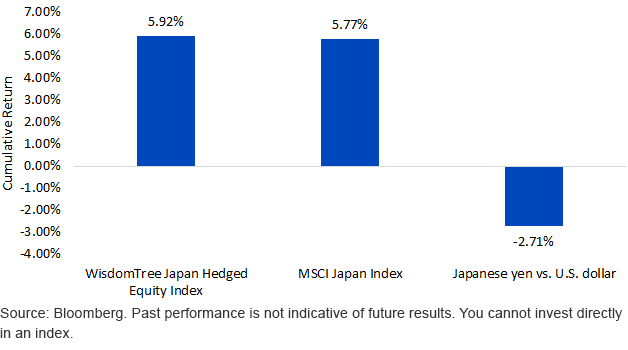
It is widely known that Japanese equities tend to have an inverse relationship to the performance of the yen. Namely:
When we look thus far at 2018, data from Japan’s Ministry of Finance has indicated that more than $30 billion has left Japanese equities from foreign investors.1 Clearly, foreign investors haven’t been happy with Japan as an allocation, and a probable factor contributing to this activity is that people have seen the headline number for the Japanese yen/U.S. dollar exchange rate touching below 105—quite a strong level!
Warning: Yen Does Not Move in a Single Direction
While foreign investors would clearly prefer to see the yen/U.S. dollar exchange rate touching levels above 110 and moving toward 120, we caution them not to forget about Japan just because the yen is currently on the stronger end of its trading range. Markets can move quickly, and during bouts of yen weakness, Japanese equities can be interesting tactical trading ideas.
Example: March 23, 2018, to April 20, 2018, Saw a 2.71% Yen Depreciation—What Did Equities Do?
Japan’s Equities Reacted Well to Recent Yen Weakness (3/23/18–4/20/18)

Key Relationships: The Yen and U.S. 10-Year Treasury Note Interest Rates

















